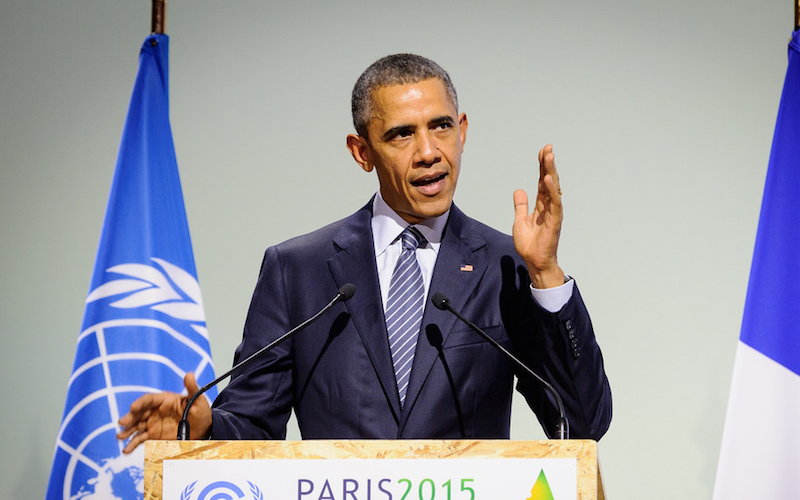
The Paris Agreement Becoming Obligations Erga Omnes
“We are the first generation to feel the effects of climate change…and the last that can do something about it.” – Barack Obama
The Paris Agreement was the outcome of the 21st Conference of the Parties (COP21) of the United Nations Framework Convention on Climate Change (UNFCCC). This agreement has been widely lauded as a historic achievement which could save the world from the catastrophic effect of global warming through various country-specific actions. This agreement could be called the turning point in the history for mankind as it encompasses the political, economic and social will of the governments, civilians, corporations, etc.
Under the agreement, countries are required to take climate actions as per their pledge and need to keep the average global temperature rise within 2 degrees Celsius by the end of this century. To ensure that the countries make progress towards their pledge a transparency mechanism has been put in place to monitor the countries and their actions.
The climate action plans made by the countries will be periodically revised. During the COP21 governments had formally accepted to lead climate action and pledged to adopt climate-friendly policies to further their goal. They also decided to complete a rulebook by 2018 which would deal with the measures, accountability and review of the climate action plans. This rulebook would further ensure transparency which is required to accelerate and deliver the required goal. Governments further agreed to strengthen their technology and provide financial support to the developing nations as well to ensure the use of clean and sustainable energy.
A reason for the agreement to be reached on this complex issue within such a small time is due to the nature of the agreement itself. It isn’t overtly prescriptive or intrusive as it allows the nations to determine the procedure to follow to reach the end goal, thereby preserving their sovereign space. The agreement gives a direction and collective purpose. However the obligations under the Paris agreement are now obligations erga omnes and a breach of such an obligation could be invoked by any other Party to the agreement.
The agreement had reached its threshold for entry on the 5th of October, 2016 with a total of 195 countries adopting it. The expected ratification date for the agreement was 2020. Its early entry into force is a clear sign from the nations that they are devoted to address climate change. With this the Paris agreement has now become international law and the Parties to the agreement have an obligation to perform the agreement in good faith, according to the principle of pacta sunt servanda(agreements must be kept).
A reason for the rapid adoption of the Paris agreement could be the unwavering support given by the United Nations Secretary General, Ban-Ki Moon. This agreement could be the biggest impact that he leaves behind. “Today we make history in humankind’s efforts to combat climate change,” the United Nations Secretary General Ban-Ki Moon said at the United Nations’ headquarters in New York.
With a stagnation in the international law making process, the enactment of this agreement has shown that it is still possible to reach a multilateral agreement. This is seen as a sign of hope that nations can still get together and cooperate on issues which still plague the global community. However, this agreement is only one of the primary steps taken in order to transition from a dependency on fossil fuels to renewable sources of energy.
The Paris agreement has laid the foundations towards the future of clean and sustainable energy. However, this is not enough. “We are still in a race against time. We need to transition to a low-emissions and climate-resilient future,” said Ban-Ki Moon. Many of the details regarding this ambitious plan combat global climate change needs to be addressed at COP22 which is currently going on at Marrakech, Morocco.

